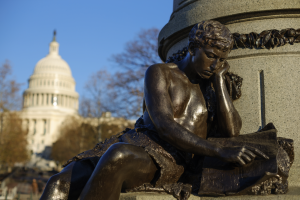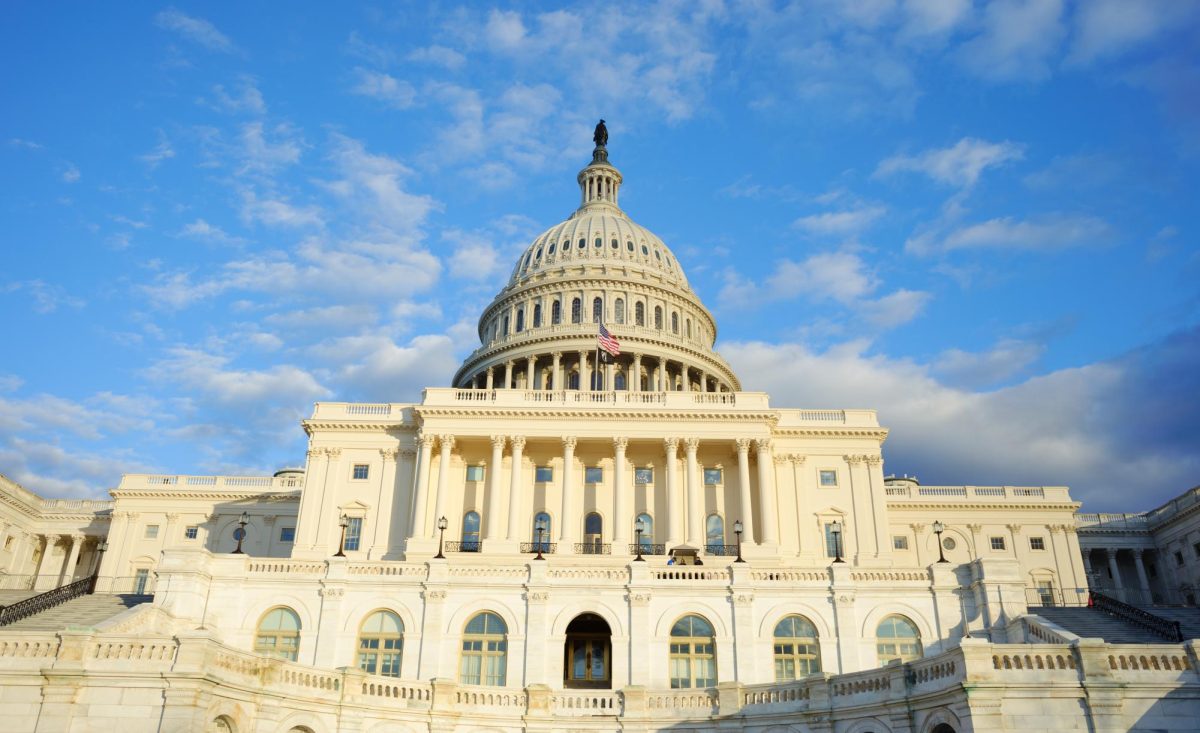The Supreme Court abandoned all judicial restraint and rewrote part of the U.S. Constitution that disqualifies an insurrectionist from holding office.
On Jan. 6, 2021, supporters of Donald Trump attacked the Capital Building in Washington D.C. following a rally at which Trump urged them to march on the Capital to stop the certification of the 2020 election. For Trump’s role in the attack, the Colorado Supreme Court upheld a lower court’s decision that Trump had committed insurrection and was thus disqualified from running for president according to the 14th Amendment.
The Supreme Court overturned that decision on March 4 in a unanimous judgment. However, the conservative majority on the Supreme Court broke from legal doctrine and disregarded the principle of judicial restraint to address a novel constitutional question not before the Court.
In a case regarding whether the states have the authority to remove a presidential candidate from the ballot, the Supreme Court unnecessarily opined on the question of how the 14th Amendment can be implemented on a federal level to prevent oath-breaking insurrectionists from holding positions of power.
The conservative majority on the Supreme Court determined that Congress alone has the power to implement the 14th Amendment and effectively rewrote the rules by which an insurrectionist can be disqualified from holding office.
Section 3 of the 14th Amendment, known as the Disqualification Clause, unequivocally states that no person who has engaged in insurrection or rebellion, and who has previously taken an oath to uphold the Constitution, shall hold any civil or military office in the government. Section 3 also disqualifies any person who provides aid or comfort to those who have engaged in insurrection against the government.
According to the Court’s majority opinion, Congress must “ascertain what particular individuals are embraced” by the Disqualification Clause and pass legislation determining whether to disqualify those individuals from holding office in the government. Such legislative action would require a simple majority vote of more than 50% in both the Senate and the House of Representatives.
However, this directly contradicts the Constitution. According to the Disqualification Clause, any person who has committed insurrection can only hold office if Congress votes by two-thirds in both houses to remove the disqualification.

Changing from a two-thirds vote to a simple majority may seem like a mere technicality, a small or insignificant detail. However, it may serve a more insidious purpose: to enable oath-breaking insurrectionists to hold positions of power in the government.
If an individual commits an act of insurrection while their party holds a majority in either the House of Representatives or the Senate, then the Court’s opinion will empower those party members in Congress to prevent passing legislation that disqualifies the insurrectionist.
This sets a dangerous precedent that could allow an insurrectionist who intends to overthrow U.S. democracy to hold the most powerful office in the government.
It is essential to not overlook the implications of the Supreme Court’s opinion. It has deemed itself to have the power to unilaterally rewrite how amendments to the Constitution work. If the Supreme Court is willing to contradict the 14th Amendment, to the benefit of insurrectionists, what other amendments is it willing to change?
What we think of as fundamental rights—freedom of speech, right to due process, right to life, liberty and the pursuit of happiness, equal protection under the law and more—are all protected by Constitutional amendments. Are there other amendments that the Supreme Court will decide a simple majority in Congress can change or take away?
The U.S. has not faced such an existential threat to its balance of power in the 248 years since its creation. To have the Supreme Court making decisions that insulate insurrectionists from disqualification from holding office is a serious threat to democracy, especially considering the Court is composed of individuals not elected by the people.
It is important to look at the Supreme Court’s opinion within the context in which it was made. The Supreme Court did not overturn nor disagree with the Colorado Supreme Court’s conclusion that Trump committed insurrection. It did, however, create an unconstitutional rule that conveniently puts in place measures to ensure that oath-breaking politicians will not be disqualified from being president even if they are convicted of committing insurrection.
The only way to protect U.S. democracy, and ensure that our way of life endures, is to vote the politicians that threaten our democracy out of office. If we do, we can prevent such politicians from using this Supreme Court opinion to protect anyone who commits insurrection. Furthermore, a simple majority in Congress of individuals committed to protecting democracy could prevent the implementation of any legislation that enacts other unconstitutional decisions made by the Supreme Court.
The power to protect our rights and the future of U.S. democracy can no longer be trusted by the systems that are supposed to maintain a balance of power in the government. Therefore, we must take the initiative and vote for representatives who will ensure that insurrectionists cannot threaten our freedom, that our rights will not be abridged by a conservative Supreme Court, and that our democracy will endure.



